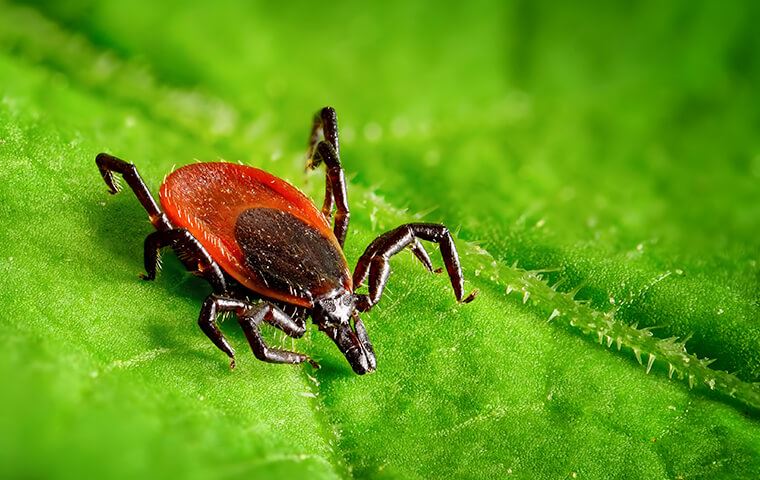Last year, the Centers for Diseases Control and Prevention (CDC) issued a statement that cases of tick-borne diseases in the United States had more than doubled from 2004 to 2016. Of the tick-borne diseases tracked, Lyme disease accounted for 82 percent of the disease cases recorded. This is unsettling since Lyme diseases in its chronic stage are untreatable and come with a long list of serious medical symptoms. It is called the great imitator because it shares symptoms with several diseases including ALS, fibromyalgia, MS, Parkinson's, Alzheimer's, and chronic fatigue syndrome. As you can tell from this list, Lyme disease is bad. Very bad. And pet owners are at greater risk of exposure to tick-borne diseases.

Sadly, Lyme is not the only life-threatening and chronic illness-causing disease that can be spread by exposure to ticks. Just a few of the diseases ticks are known to spread include Rocky Mountain spotted fever, babesiosis, Southern tick-associated rash illness, ehrlichiosis, tularemia, Powassan encephalitis, Q fever, and Colorado tick fever. All of these diseases are unique and almost all have cases that have led to death.
It is important at this point to make sure you keep this threat in perspective. Not every tick that bites you will spread diseases to you, and you can prevent tick-borne diseases if you catch and remove ticks early. Safeguarding yourself, your family and the health of your pets takes diligence but it is doable.
Tips to Avoid Tick Exposure
- Take steps to protect your pets. Get flea and tick collars for all of your pets if it is appropriate for them. If you don't have a fenced-in outdoor play area for your dogs, consider installing one. When you take your dog for a walk, stay away from grassy areas, and walk on the center of paths. Do routine checks of your pets, especially after being outside, by feeling their skin for small bumps. Ticks are most likely to attach to animals between the toes or in the ears. These are good places to look first.
- When you go for walks in nature, be sure to apply mosquito repellent to your legs and feet. Ticks don't leap onto you or fall from trees, they climb up your body.
- Wear bright colors so it is easier to see ticks when they try to climb up.
- It may look silly but putting your pant legs in your socks can prevent ticks from getting up underneath your pant legs and attaching to your skin. The good news is that ticks on your legs are easy to detect and will likely be removed before diseases can be transmitted.
- If you find a tick, be sure to remove it properly. Use a tick removal tool or needle-nose tweezers. Pinch the tick near the head (not the body) and pull down and away from your skin.
- If you find ticks inside your home, contact a licensed pest control provider. Tick infestation can be complicated to deal with. A professional knows what questions to ask to figure out how the ticks might be getting into your home. If rodents are involved, a professional can provide effective rodent control and monitoring services. If interior treatments are needed, a professional knows what products to use and where to apply them for successful extermination. Don't risk the health of your family and your pets to DIY tick control.
- Everything you do around your home to control wildlife will have an impact on how many ticks you have in your yard. Keep exterior trash in sealed containers. Keep clutter to a minimum. Keep your grass trimmed and weeds plucked. Install fencing, especially around food sources, and prevent animals from frequenting your yard for a bite to eat. Be aware that birds can bring ticks into your yard. Put bird feeders away from your exterior walls and outside of your outdoor recreation areas.
- Everything you do to control moisture around your home will reduce tick populations. Ticks require a lot of moisture to survive. For this reason, they are prone to getting into landscaping that is routinely watered. If you create space between your plants and trim bushes, your soil will dry faster after watering and reduce the moisture ticks need to survive.
If you live in our San Antonio service area, connect with us. The team at Family Pest Control offers real solutions for ticks and other pest threats. Get started with a free pest control estimate.
